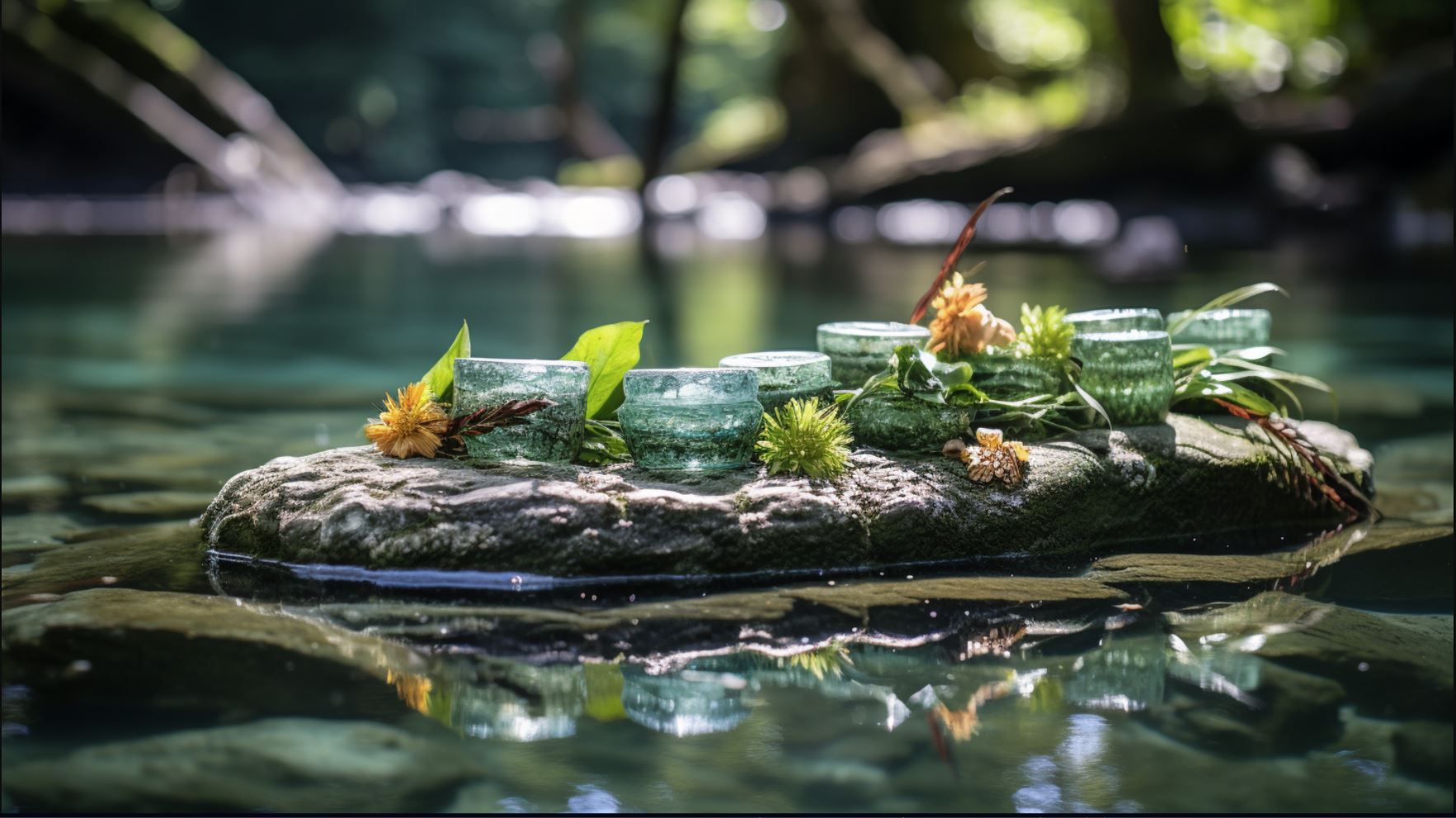Acionna Goddess: Unveiling the Mysteries of the Water Deity

Acionna Goddess, revered in various locations, holds a significant place among water deities. Historical inscriptions discovered near Orleans and Cenabum mention her name, reflecting her association with flowing rivers and nearby water sources.
Known for her healing and rejuvenating abilities, Acionna is also worshipped by mariners and maritime communities. Additionally, Celtic beliefs embrace the divine nature of water, as evidenced by intentional offerings in aquatic locations and the personification of rivers and springs by goddesses.
Archaeological findings further support the existence of healing deities like Acionna.
Origins and Mythology of Acionna
The origins and mythology of Acionna, the revered water deity, have been passed down through ancient accounts and references. These historical sources shed light on the significance of Acionna and her connection to various regions, particularly Orleans.
The Ancient Accounts and References
Through ancient texts and inscriptions, Acionna’s name and worship have been documented, providing valuable insights into her role in Celtic mythology. These accounts serve as a testament to the reverence and belief surrounding Acionna as a powerful water goddess.
Connecting Acionna with Orleans
Orleans, a city situated by rivers and water sources, holds a special connection with Acionna. Inscriptions found in the region suggest that Acionna was honored and worshipped by the local communities.
The flowing rivers, such as Essone, The Esse, and Aisne, are believed to be intimately linked to Acionna and her divine presence.
Significance of Orleans in Relation to Acionna
Orleans’ proximity to these rivers and its historical association with Acionna further emphasizes the importance of water in the worship of this goddess. The city served as a sacred site where rituals and offerings were made to seek the blessings and healing powers attributed to Acionna.
Acionna’s Role as a Water Deity
Acionna is recognized as a prominent water deity within Celtic mythos. Her name, derived from the Celtic root ‘acio-‘, meaning ‘water,’ solidifies her connection to rivers, springs, and bodies of water.
As a goddess of water, Acionna is believed to possess the power of renewal and healing, symbolizing the life-giving properties associated with aquatic ecosystems.
Her role extends beyond mere reverence, as Acionna is considered a guardian and protector of water sources.
Worshippers attribute her influence to the vitality and well-being of their communities, seeking her aid in times of drought, illness, or other challenges related to water.
Worship and Beliefs Associated with Acionna
Acionna, the revered water deity, holds a significant place in Celtic worship and belief systems.
Let us explore the fascinating aspects of her worship and the beliefs associated with her divine presence.
Acionna’s Healing and Renewal Powers
Acionna is widely recognized for her remarkable healing abilities and her role in facilitating spiritual and physical renewal. Her divine connection with water symbolizes its purifying and transformative qualities. Followers of Acionna believe that by immersing themselves in the sacred waters connected to her, they can experience rejuvenation and healing.
Acionna as a Patron of Mariners and Maritime Communities
Acionna holds a special place among mariners and communities residing near coastal regions, as she is regarded as their patron deity. Sailors and fishermen often seek her protection and guidance on their voyages, perceiving her as a source of strength and safety during their maritime endeavors.
They offer prayers and appeals to Acionna for favorable winds, calm seas, and successful journeys.
The Hidden Sanctuary of Ruarstead
Tucked away beneath the tranquil waters of Ruarstead lies a hidden sanctuary dedicated to Acionna. This sacred site, surrounded by myths and legends, is believed to be a haven where Acionna’s presence can be accessed.
It is a place of pilgrimage for devotees seeking solace, blessings, and a deeper connection with the water goddess. The sanctuary serves as a quiet refuge where individuals can commune with Acionna and offer their reverence within the enchanting underwater realm.
Water Divinity in Celtic Culture
Water held immense significance in Celtic culture, believed to be a conduit between the divine and mortal realms. The reverence for water entities is evident in the practice of offering objects, personification of rivers and springs by goddesses, and archaeological evidence supporting the existence of healing deities.
Objects Offered to Water Entities
As a way of honoring and appeasing the divine entities believed to reside in water, valuable objects were deliberately deposited in aquatic locations. These offerings, ranging from jewelry to weapons, were seen as acts of devotion and were believed to establish a connection between the human realm and the spiritual realm of water.
Examples of such practices can be found throughout Gaul, Great Britain, and Ireland, highlighting the deep-rooted belief in water as a sacred entity.
Personification of Rivers and Springs by Goddesses
Celtic mythology often personified rivers and springs as goddesses, highlighting the reverence for water in their belief system.
Sequana, personifying the river Seine, Souconna, personifying the river Saône, and Matrona, personifying the river Marne, are just a few examples of how deities were associated with specific bodies of water.
These goddesses were revered for their connection to the life-sustaining properties of water, embodying its healing and nurturing qualities.
Archaeological Evidence Supporting Healing Deities
Archaeological discoveries further reinforce the belief in healing deities associated with specific springs and wells. Coventina, a goddess of healing and fertility, was worshipped in Roman Britain and has been linked to the offerings found in the well at Carrawburgh.
Similarly, Acionna in Gaul was associated with specific healing springs, emphasizing the belief in the therapeutic powers of water.
Through the practice of offering objects to water entities, the personification of rivers and springs by goddesses, and the archaeological evidence supporting healing deities, the Celtic culture revered the divine nature of water and its ability to provide renewal, healing, and spiritual connection.
.




















